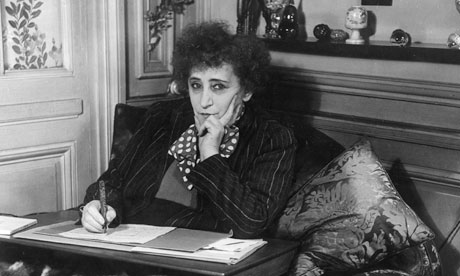
"What I want from a literary critic," wrote the great French writer, Julien Gracq, "and what is so rarely given, is for the critic to tell me, better than I could do myself, why reading a book gives me a pleasure that cannot be replaced."
And so I give you, on the centenary of its first publication, The Vagabond by Colette, a rousing novel of love and guile, of vulnerability and vituperative wit, of poetry and self-empowerment, a slim volume scored with little wisdoms, sumptuous descriptions and the "heroic vanity" of an unforgettable cast.
Aged 33, the narrator, Renée Néré (Renée means "reborn") has been divorced for three years from the systematically unfaithful Taillandy, an odious fop modelled on Colette's first husband, Willy, who ordered his wife to write the (as it turned out, hugely successful) Claudine novels, which were initially published under his name. Still haunted by (and sometimes luxuriating in) her suffering, Renée seeks to recover her élan with a theatrical flourish: as a dancer for a barely reputable (and barely dressed) café-concert. (Indeed, her own outfit gives her the appearance of a Salomé who's short of a veil or two.)
In the first of the novel's three parts, Colette (recalling her own dance-hall days) piques our senses with the cackle of backstage vernacular, the dressing-room stench of "plaster, ammonia, Crème Simon and rice powder", and the revealing costumes and mannerisms of the chirpy, but down-at-heel members of the troupe. Take young Jadin from the "outer boulevards", whose "hunched shoulder ... looks as if it were still lugging along the laundry basket", or Braque, the spirited impresario and one of Renée's confidants (a wonderful foil for her bouts of self-reflection), who "alone in his dressing-room ... improvised an extraordinary monologue of a moonstruck person defending himself against spectres".
A mistress of metaphor and sparking detail, and with more punch than Proust, Colette's descriptions are often laugh out loud funny, at once cruel and compassionate, but usually followed swiftly by a warm, reflective melancholy. What I like most is that she has the discipline not to descend into sentimental farce, and can switch from flirtation to derision with a well-lacquered wink. Likewise, when her writing attains a dreamy, poetic intensity with Renée's yearning (for the countryside idyll of her childhood, for love, or to be free of love), she is always sure to pinch herself awake with wit.
Enter the "Big-Noodle". Monsieur Dufferein-Chautel appeared in part one as a love-struck idler extraordinaire, with the "slightly clumsy air of a wood-cutter on his best behaviour". Determined to remain in defiance of things past, Renée is not amused. Then, in part two, her fear of loneliness and aging returns. (Yes, Colette's heroines are only human.) Renée will not give up on love, nor will she give in to it. She entertains a light courtship with the Big-Noodle (as she calls him) before promptly fleeing on tour with the troupe, leaving her almost-lover "putting on the look of a beggar at the pastry chef's window".
Reims, Nancy, Belfort, Nimes, Montpellier, Carcassonne. In part three, Colette conjures a 40-day tour, if not of the wilderness, then of the provinces, packed with chance details glimpsed with a traveller's eye: the "pink apple trees which cast a blue shadow" seen from a speeding train, or – my favourite – a station at night where "a cracked bell tinkles timidly in the shadows, as though it were hanging from the neck of a paralysed dog". Colette writes just as magically about the great outdoors as she does about the smoky, sweaty interiors frequented by dancers who clean their costumes with petrol, and eat with scrawny prostitutes in "imitation oak dining rooms". At times, Jean Rhys's brilliant, desperate, drunken Paris novels come to mind here, but Colette has more poetry, more ways of coping, more grace to go with the grit. Meanwhile, the Big-Noodle writes lovelorn letters. And Renée's equanimity returns. After concluding a reply to him with an outpouring of tender sentiments, she avers: "Rather disgusting, all that."
Throughout this extraordinary – irreplaceable! – novel, Colette provides many exquisitely timed funny-sad turns, as when the boisterously assertive Renée argues with her agent, or when the hapless Big-Noodle takes her out in his new car, not to mention the hilarious cameos from Fossette, Renée's beloved mastiff that "knows how to play cards in the bulldog manner". Best of all are Renée's wise, uplifting tête-â-têtes with her friends when they tease each other about their dramatic failures in love, and Renée's own quietly inspiring soliloquies as she seeks to take stock, and move on.
Has the novel dated in the course of a century? Not at all. There's enough energy and inventiveness here to blow away any dusty hints of antiquarian charm. And for years I've been telling people that no one writes about relationships as perceptively as Colette. To which I could add: or about animals, flowers, furniture, clothes, food ... a sensualist? Mais oui, but she leaves the last bite to the sybarite.

